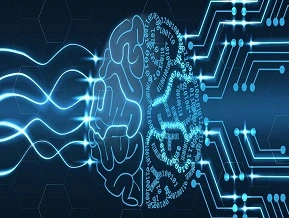The AI Beginner Course provides an in-depth exploration of artificial intelligence (AI), focusing on key concepts, definitions, and applications.
AI Beginner Course
The AI Beginner Course provides an in-depth exploration of artificial intelligence (AI), focusing on key concepts, definitions, and applications. From understanding the artificial intelligence meaning to exploring the definition of artificial general intelligence, this course equips learners with the knowledge to navigate the AI landscape confidently.
This course is part of AI Concepts and Terminology, covering the fundamentals of machine learning, deep learning, natural language processing (NLP), computer vision, and robotics, among other essential AI domains. Students will also examine ethical and social implications, ensuring a well-rounded understanding of AI’s impact on technology and society. Designed for both newcomers and those familiar with AI, the course balances theoretical knowledge with practical applications, preparing participants for careers or further study in the rapidly evolving field of artificial intelligence.
This course is ideal for: Beginners seeking a comprehensive introduction to AI concepts and terminology. Professionals looking to understand the implications of AI in various industries. Students in computer science, engineering, or related fields exploring AI as a specialization. Enthusiasts who want to learn the foundational concepts and trends shaping AI today. No prior experience with AI or programming is necessary, though a basic understanding of technology and data would be helpful.
Understand the artificial intelligence meaning and its foundational principles.
Explore the definition of artificial general intelligence and its significance.
Identify key concepts in machine learning, deep learning, and other AI disciplines.
Analyze real-world applications of AI across industries.
Develop a foundational understanding of NLP, computer vision, and robotics.
Address ethical and societal considerations in AI development and deployment.
Stay informed on the latest trends and future directions in AI terminology.
-
Learn the basics of AI, including its history, definitions, and core principles. Understand the distinctions between narrow AI and artificial general intelligence.
-
Explore the fundamentals of supervised, unsupervised, and reinforcement learning. Gain insight into algorithms and their practical applications.
-
Delve into neural networks and their architecture. Learn about key techniques such as convolutional neural networks (CNNs) and recurrent neural networks (RNNs).
-
Understand how machines process and interpret human language. Explore applications like chatbots, sentiment analysis, and text summarization.
-
Examine AI’s role in image recognition, object detection, and facial recognition. Discover how AI powers innovations in computer vision.
-
Learn about AI’s integration into robotics, enabling autonomous systems such as drones and self-driving cars.
-
Discuss the ethical challenges and societal impact of AI, including bias, transparency, and accountability.
-
Explore emerging technologies, evolving terminologies, and trends shaping the future of artificial intelligence.
Earn a Professional Certificate
Earn a certificate of completion issued by Learn Artificial Intelligence (LAI), accredited by the CPD Standards Office and recognised for supporting personal and professional development.

Key Aspects of Course

CPD Accredited
Earn CPD points to enhance your profile

Free Course
This course is free to study

Self-Paced
No time limits or deadlines

Flexible & 24/7 Access
Learn anytime, anywhere

Build In-Demand Skills
Get job ready

Updated AI Skills
Stay current with AI advancement

Global Learning
Accessible Worldwide

Premium Materials
High-quality resources

Employer Approved
Boost your career prospects



